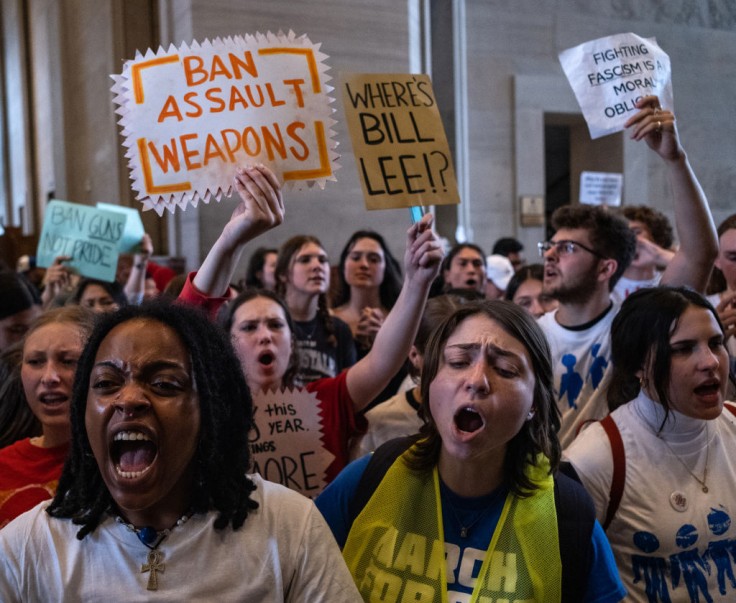
Tennessee Governor Bill Lee announced his intention to sign a bill approved by state legislators earlier in the week allowing guns in school to be carried by teachers and staff. This legislation permits school staff to carry concealed handguns within school premises.
During a press briefing on Thursday, April 25, Governor Lee emphasized the significance of providing school districts with tools, including the option for staff to carry concealed firearms, to enhance student safety within educational environments.
Tennessee House Republicans endorsed the legislation, disregarding appeals from Democrats, students, and advocates of gun reform, who urged against its passage.
Tennessee's New Education Law
The legislation is poised for potential enactment in the coming weeks, pending Tennessee Governor Bill Lee's decision to either sign it directly or let it pass into law without his formal endorsement, a practice he has consistently followed without vetoing bills.
Under the proposed law, trained teachers will undergo mandatory training, although critics argue that this training might not be comprehensive enough.
These educators will then have permission to carry concealed handguns within their classroom environments and various campus settings without disclosing their armed status to parents or most colleagues.
Approval for a staff member to carry a concealed firearm requires sign-off from the school district's director of schools, the principal, and the chief of the designated law enforcement agency. This stipulation grants school administrators the potential authority to deny any teacher's request to carry a firearm on campus. Additionally, the legislation mandates thorough criminal and mental health background checks.
During recent deliberations, Republican lawmakers rebuffed multiple attempts by Democrats to modify the bill. These proposed changes included mandates for teachers to secure their handguns except during security breaches, holding teachers accountable for firearm use on campus, and informing parents about the presence of firearms in school settings.
Proponents of the bill argue that arming trained staff can bolster school security, especially in rural areas where law enforcement resources may be limited, leading to extended response times for emergencies in distant communities.
The 2023 General Assembly allocated funds to station armed school resource officers (SROs) at all Tennessee schools. However, challenges in staffing have hindered the fulfillment of these positions, with nearly 600 schools still lacking an SRO.
Advocating Against Carrying Guns and School Safety
The introduction of HB 1202/SB 1321 stirred significant opposition in the Senate this month, drawing vocal protests from various groups, including parents of school shooting survivors, gun-reform advocates, and students, who actively lobbied against its passage.
A mother from Covenant School presented a letter to the House, signed by over 5,300 individuals, urging lawmakers to reject the bill.
Critics of the legislation, including the aforementioned groups, expressed shared apprehension regarding its secrecy clause. This provision prevents school administrators from disclosing the identities of armed individuals within the school except to relevant law enforcement and security personnel.
Representative Williams defended this measure, citing the need to safeguard gun carriers' anonymity to shield them from potential repercussions in employment decisions.
Tennessee State Representative Justin Pearson strongly condemned the bill, labeling it "absolutely insane."
Pearson emphasized the importance of parental awareness regarding potential risks associated with having armed individuals in classrooms, highlighting concerns about accidental discharge and harm to students. Tennessee's move to permit teachers to carry firearms aligns with trends in other states.
According to data from the Giffords Law Center, at least 26 states have enacted similar laws allowing teachers or school employees to possess guns on school premises, albeit with certain exceptions and variations in regulations.